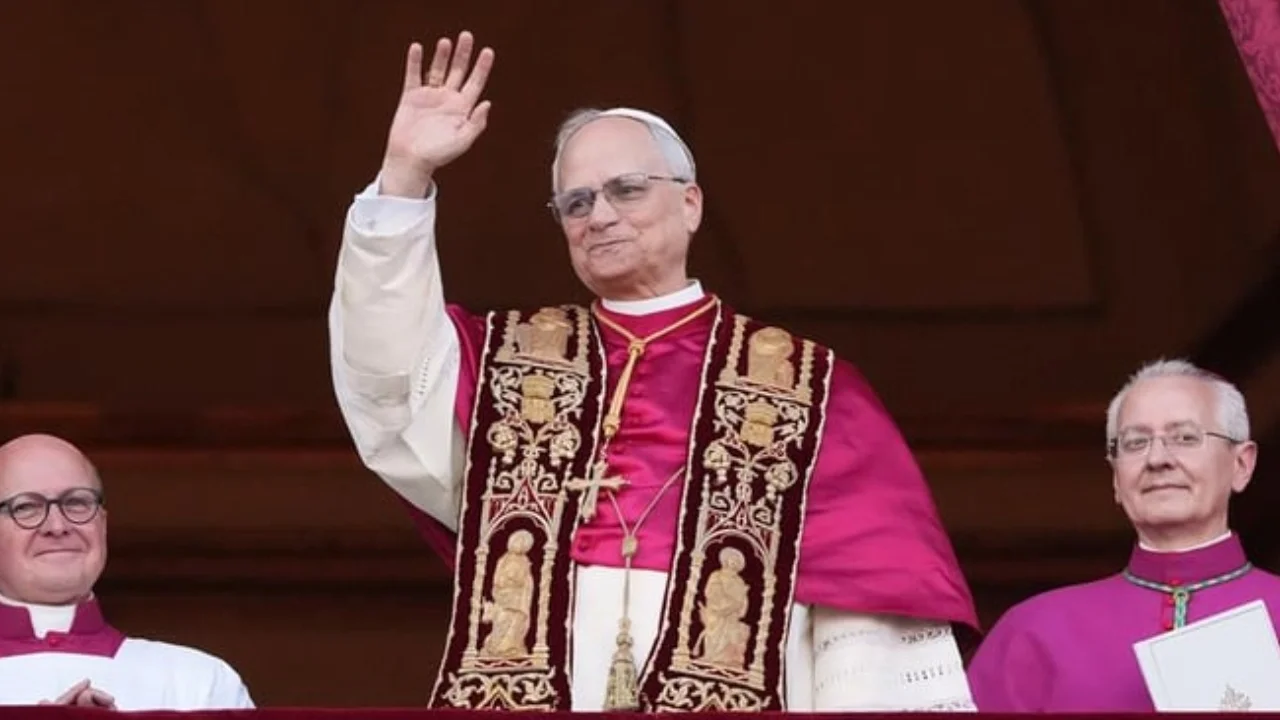In a historic moment for the Catholic Church, First American Pope Robert Francis Prevost has been elected to lead the world’s 1.3 billion Catholics. His election marks the first time a U.S. citizen has ascended to the papacy, representing a significant shift in the Church’s global identity and direction. At 69 years old, Cardinal Robert Prevost brings decades of pastoral, administrative, and missionary experience to the papal office, along with a reputation for humility, balance, and reform-minded leadership.
The Global Background of First American Pope Robert Francis Prevost
What makes First American Pope Robert Francis Prevost uniquely suited to this role is his deeply international background. Born in Chicago, he holds dual citizenship in the United States and Peru. Much of his ministry has been spent outside the U.S., including extensive service in Latin America and Europe. This global perspective gives him uncommon insight into the spiritual and societal challenges faced by the Church across continents.
Prevost’s multilingualism—he is fluent in English, Spanish, Italian, French, and Portuguese, and reads Latin and German—enables him to connect directly with clergy and faithful around the world. His long missionary work in Peru, combined with his current leadership as head of the Vatican’s Dicastery for Bishops, has positioned him as both a pastoral shepherd and a skilled administrator.
Why First American Pope Robert Francis Prevost Appeals to a Global Church
The election of First American Pope Robert Francis Prevost reflects the evolving nature of the Church, which is increasingly centered in the Global South. His close connection to Peru allows him to serve as a bridge between North and South America, bringing a more inclusive, multicultural lens to the Vatican. His dual citizenship softens concerns historically held by some cardinals about electing an American pope, helping broaden his appeal across diverse regions.
Prevost is widely regarded as a centrist. He supports the Church’s movement toward synodality—greater participation and inclusiveness—while maintaining doctrinal orthodoxy. His balanced leadership style and deep pastoral sensitivity make him a unifying figure during a time when the Church faces internal division and external scrutiny.
Challenges Facing First American Pope Robert Francis Prevost
Despite widespread support, First American Pope Robert Francis Prevost steps into the papacy with major challenges ahead. As the first pope from the U.S., he will need to carefully navigate global perceptions of American cultural and political influence. Maintaining neutrality and avoiding alignment with American political ideologies will be critical to his credibility and ability to lead a truly global Church.
Additionally, Prevost must manage the tension between progressive and conservative elements within Catholicism. While he emphasizes inclusion and social justice, he remains committed to tradition on key doctrinal issues. Balancing these priorities to maintain unity among bishops, clergy, and laity will be a core test of his leadership.
The Church also faces pressing issues such as declining attendance in the West, growing faith communities in Africa and Asia, calls for reform, and the need to address clergy abuse with transparency and accountability. Prevost’s experience in Church governance and canon law will be essential as he works to reform structures while safeguarding the Church’s foundational teachings.
Admiral Sir Ben Key Steps Down as First Sea Lord Citing Personal Reasons
A Symbol of Hope and Transformation
First American Pope Robert Francis Prevost represents more than a historical milestone—he symbolizes a shift toward a more connected, inclusive, and responsive Catholic Church. With a global heart and a pastoral touch, Prevost offers the potential to continue Pope Francis’s legacy while guiding the Church into a new era of unity and renewal.
As the Church looks to the future under his leadership, many believe Pope Robert Francis Prevost is well-positioned to serve as a shepherd to the world, not merely as the first American pope, but as a truly universal pastor.

